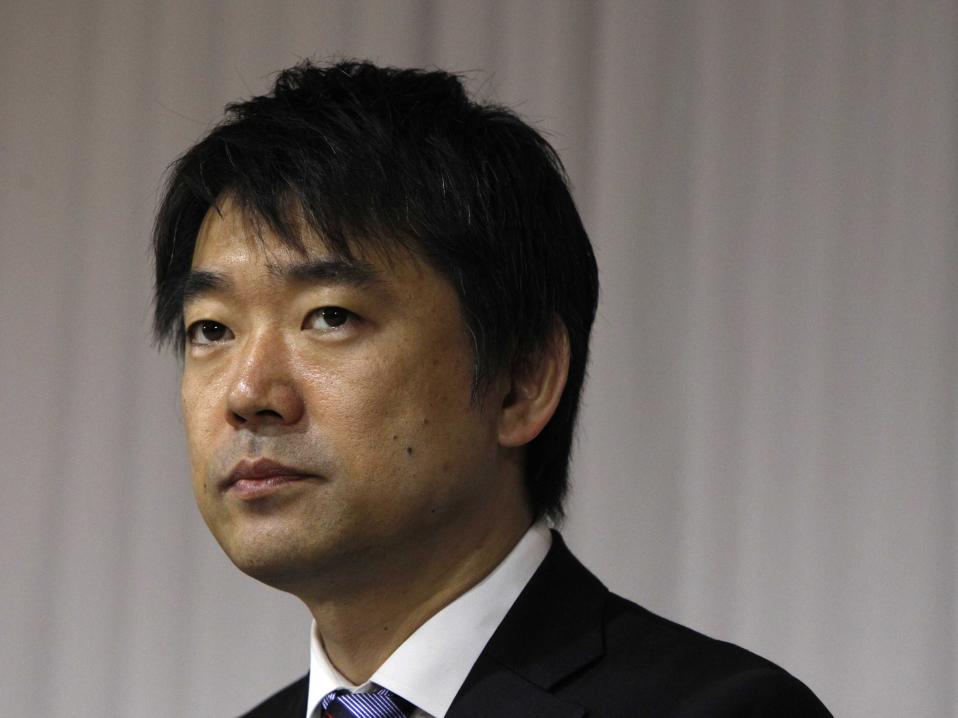Japanese Politician Says Wartime Sex Slaves Were 'Necessary'

REUTERS/Issei Kato
A prominent Japanese politician's comments about "comfort women" — foreign women forced to provide sex for Japanese soldiers during World War II — have caused anger in South Korea and China.
According to the Asahi Shimbun, Osaka mayor Toru Hashimoto told reporters yesterday that the comfort woman system was "necessary" in the circumstances of war.
Here's a full account of his comments:
“In the circumstances in which bullets are flying like rain and wind, the soldiers are running around at the risk of losing their lives. If you want them to have a rest in such a situation, a comfort women system is necessary. Anyone can understand that."
"When I checked the history of those years, I found that not only the Japanese army but also those of various countries were utilizing (comfort women).”
“It is a result of the tragedy of the war that they became comfort women against their will. The responsibility for the war also lies with Japan. We have to politely offer kind words to (former) comfort women.”
“Japan is a defeated country. As a result of the defeat in the war, we must accept (the view) that what Japan did was aggression. There are no doubts (about the accusation) that Japan caused tremendous suffering and damage to neighboring countries. Japan must reflect on it and make an apology.”
The comments have already provoked angry responses from Japan's neighbors — South Korea has already voiced "deep disappointment” with Hashimoto's comments, and China has said the comments challenge "humanity and historical justice."
As many as 200,000 women, mostly from China and Korea, are believed to have been forced into brothels used by Japanese soldiers during World War II. Despite a 1993 statement offering "sincere apologies" from the Japanese government and a more strongly worded 1995 follow-up, it remains a controversial issue in the region.
Part of the issue is a widespread belief that Japan hasn't fully apologized for war-time atrocities and hasn't fully borne the responsibility for the war in the same way Germany has, for example. In recent years this has been inflamed by territorial disputes in the East China Sea, which led to widespread anti-Japanese rioting in Chinese cities last year.
Japan's wartime history is controversial situation within the country too, as many feel that Japan is unfairly criticized for World War II actions by nationalists from other countries.
Some observers see a shift towards nationalism in Japan. Hashimoto is the co-leader of the Japan Restoration Party, a recently formed nationalist-leaning party that is aiming to take over the country's lower parliament. Just 43-years-old, he was once considered a viable contender to be Japan's Prime Minister.
Current Prime Minister Shinzo Abe is considered a nationalist who has continued to honor the Yasukuni Shrine, where 14 Japanese leaders convicted as war criminals are honored along with other Japanese war dead.
More From Business Insider

